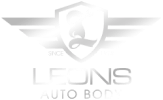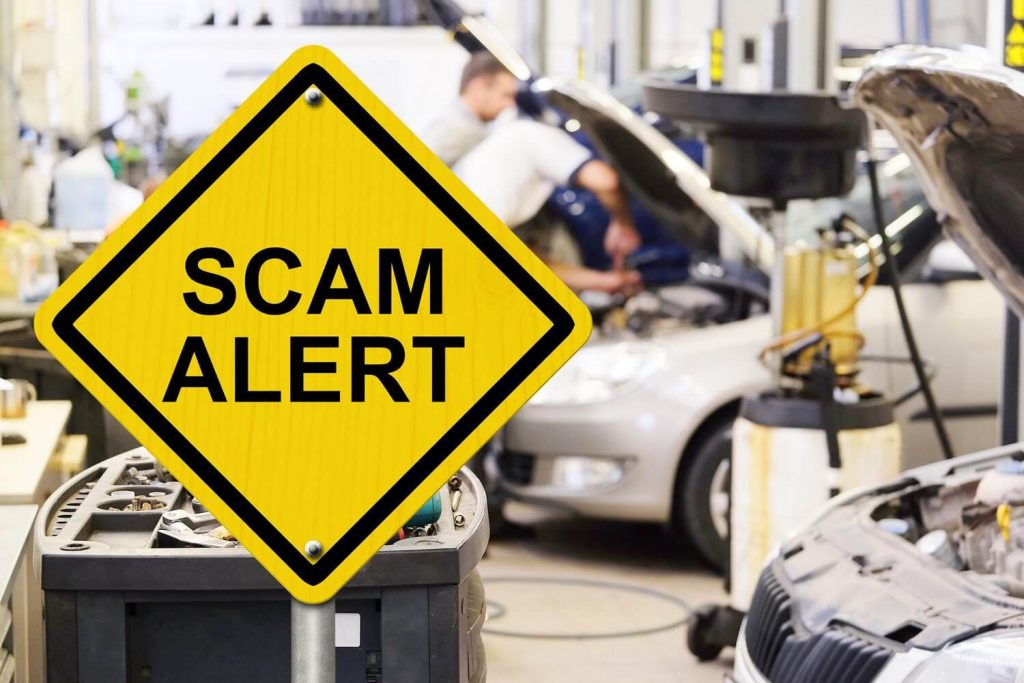The collision repair business is an unlicensed industry in Ontario. Add that to the fact that most people don’t regularly get collision repair work done, and it makes conditions that are ripe for auto body repair scams.
While car washes, gas stations, mechanical repair shops and auto body repair shops in Canada must have a Public Garage licence, getting one involves little more than paying the annual license fee. In other words, anyone can open up a collision repair centre, even if they’ve never done any bodywork. There’s also no main industry association to oversee and ensure performance standards and guidelines.
As a car owner, you hopefully won’t get into very many accidents in your lifetime. Of course, that would be a great situation, but there is a downside. If you rarely use collision repair shops then you won’t be familiar with how they work, the terminology they use and what you should be on the lookout for.
Put it all together and you get an unregulated industry that deals with customers who are unfamiliar with how the industry works. In a way, auto body repair scammers can do almost anything they want with very little chance of suffering any consequences.
‘PERVASIVE’ AUTO BODY SHOP SCAMS UNCOVERED IN ONTARIO
A comment made by Gordon Rasbach, Vice President of Fraud Management for Aviva Insurance, after a company investigation revealed widespread scams shows how easy it is to get away with a scam in the collision repair business.
“Nobody has ever really sampled the extent of fraud with any kind of accuracy. This is the first time in Canada that we’re aware of that anyone has actually taken a sample, albeit a small one, at random, and used actual cases in progress to put some kind of numbers on it” said Rasbach.
As reported by the Toronto Star, Aviva Insurance investigators uncovered scams that the company claims could be costing hundreds of millions of dollars every year.
HOW THE SCAMS WERE EXPOSED
For the investigation, the company tried to simulate typical ‘fender bender’ car accidents by deliberately crashing 10 cars. Independent repair experts were called in to assess the damage and gauge the level of body repairs needed to completely repair the cars.
The cars were then fitted with hidden cameras and placed on highways in Toronto and the GTA. Investigators posed as drivers who have just experienced their first car accident.
Over 50% of Repair Costs Were Fraudulent
The repair experts who looked at the damaged cars before they were taken into a body repair shop estimated the damage to the 10 cars to be about $30,000. Aviva received estimates from the repair shops totalling $61,000, meaning over half of the expenses invoiced were fraudulent.
THE FOLLOWING ARE AMONG THE SCAMS THE INVESTIGATION REVEALED.
- Body shop workers deliberately damaged cars to increase the cost of repairs needed.
- Used parts were used and billed as new ones.
- Tow-truck drivers billed for towing and storage that didn’t happen.
- Drivers were asked to sign blank work orders.
“The video footage and clear evidence of fraudulent invoicing shows just how pervasive the problem of fraud is,” Rasbach said.
EVERY DRIVER PAYS
While fraudulent body repair expenses can erode an insurance company’s profits, ultimately it’s drivers like you who pay the price when insurance premiums are raised to cover the expense. Insurance industry estimates suggest 10% to 15% of your insurance premiums are to cover the expense of scam expenses.
If your insurance premium is $2,000 a year, that’s $300 you are paying every year because of fraudulent auto body repairs.
Interestingly, Rasbach told The Star that Canadian insurance companies are “not compelled to report fraud, they’re not even compelled to do something about it.”
So the government isn’t taking any action to protect you. The insurance companies are willing to just increase the premiums you pay to cover their added expenses and the auto repair fraudsters continue to do their dirty work without worrying about any repercussions.
Maybe this is why drivers in Ontario pay the highest insurance premiums in Canada despite the fact that the province’s roads are the safest in the country.

